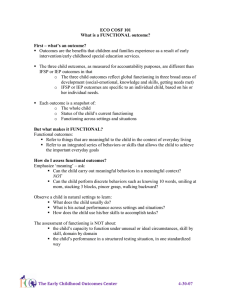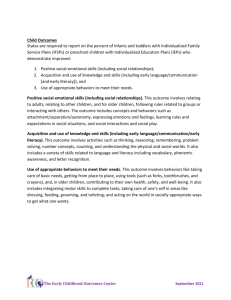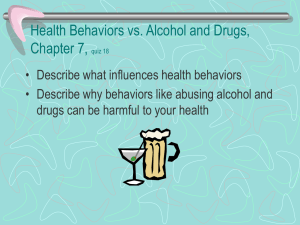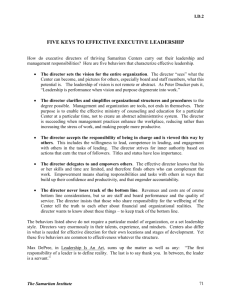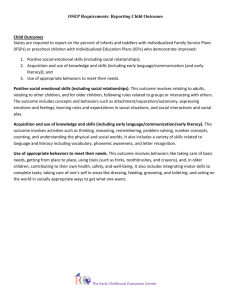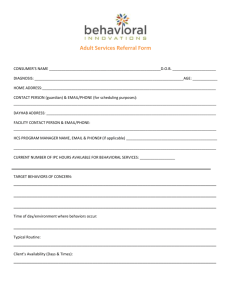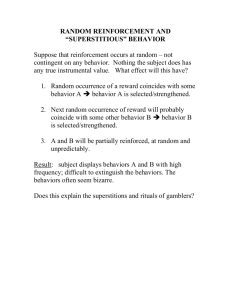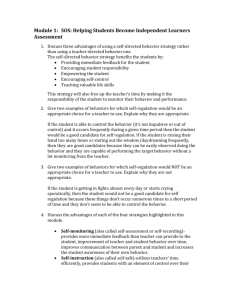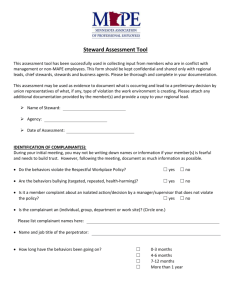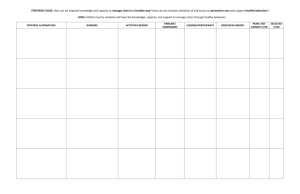Maryland Preschool Special Education1Functional Early Childhood
advertisement
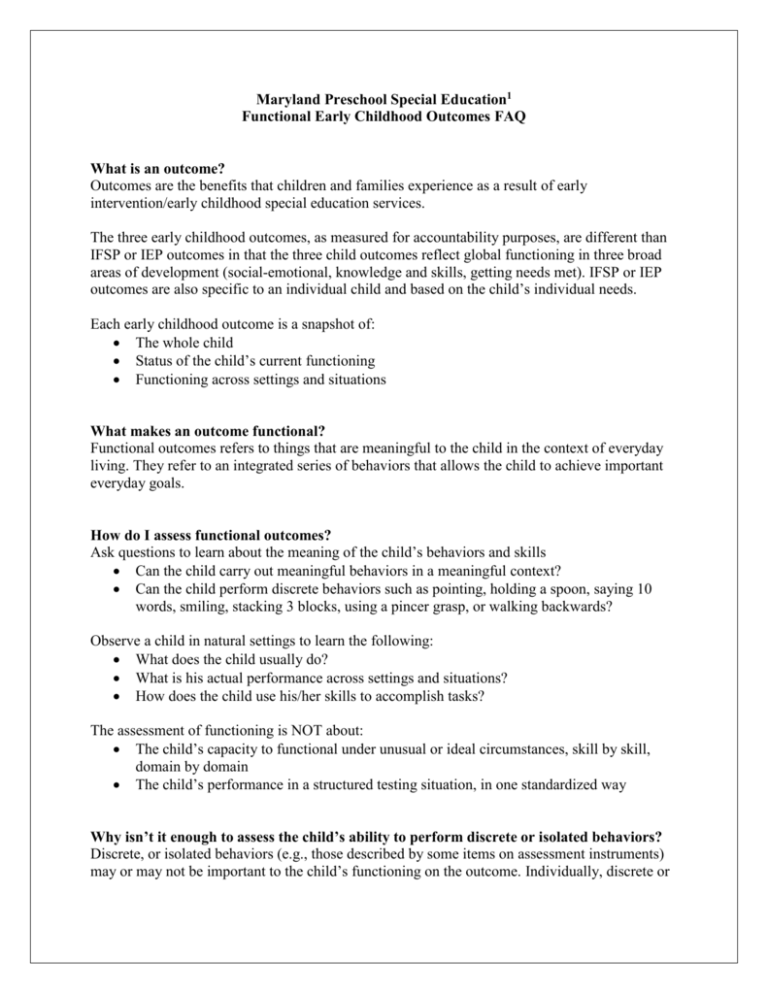
Maryland Preschool Special Education1 Functional Early Childhood Outcomes FAQ What is an outcome? Outcomes are the benefits that children and families experience as a result of early intervention/early childhood special education services. The three early childhood outcomes, as measured for accountability purposes, are different than IFSP or IEP outcomes in that the three child outcomes reflect global functioning in three broad areas of development (social-emotional, knowledge and skills, getting needs met). IFSP or IEP outcomes are also specific to an individual child and based on the child’s individual needs. Each early childhood outcome is a snapshot of: The whole child Status of the child’s current functioning Functioning across settings and situations What makes an outcome functional? Functional outcomes refers to things that are meaningful to the child in the context of everyday living. They refer to an integrated series of behaviors that allows the child to achieve important everyday goals. How do I assess functional outcomes? Ask questions to learn about the meaning of the child’s behaviors and skills Can the child carry out meaningful behaviors in a meaningful context? Can the child perform discrete behaviors such as pointing, holding a spoon, saying 10 words, smiling, stacking 3 blocks, using a pincer grasp, or walking backwards? Observe a child in natural settings to learn the following: What does the child usually do? What is his actual performance across settings and situations? How does the child use his/her skills to accomplish tasks? The assessment of functioning is NOT about: The child’s capacity to functional under unusual or ideal circumstances, skill by skill, domain by domain The child’s performance in a structured testing situation, in one standardized way Why isn’t it enough to assess the child’s ability to perform discrete or isolated behaviors? Discrete, or isolated behaviors (e.g., those described by some items on assessment instruments) may or may not be important to the child’s functioning on the outcome. Individually, discrete or isolated behaviors are not especially informative. Summed, they may or may not be useful, depending on the behaviors and/or assessment items. Think about isolated behaviors and what observing them tells you about the child. For example, suppose an assessment instrument asks you to observe whether or not a child can point: If you know that a child can point, do you know whether the child can communicate her wants and needs? If you know that a child can’t point, do you know whether the child cannot communicate her wants and needs? How does knowing about pointing help you understand how the child takes action to meet needs? What about domains? Functionality is not domains-based; children function across developmental domains. Functionality can involve multiple domains and can cross domains. Functional outcomes refer to behaviors that integrate skills across domains. Why is functionality important in the Child Outcomes Summary (COS) process? Ratings on the seven-point scale for each outcome are a snapshot of: The whole child Status of the child’s current functioning Functioning across settings and situations Ratings are based on the child’s functioning: What does the child do across settings and situations, compared with what is expected given the child’s age? Discussion Questions2 Look at the list of skills below. Which are examples of isolated skills? Which are examples of functional skills? a) b) c) d) e) f) 1 Knows how to imitate a gesture when prompted by others Uses finger in pointing motion Uses 2-word utterances Watches what a peer says or does and incorporates it into his/her own play Points to indicate needs or wants Engages in back and forth verbal exchanges with caregivers using 2-word utterances Adapted from: The Early Childhood Outcomes Center. (2007). ECO COSF 101: What is a functional outcome [fact sheet]. Available from http://ectacenter.org/~pdfs/eco/Functional_outcomesHO.pdf 2 a=isolated, b=isolated, c=isolated, d=functional, e=functional, f=functional
